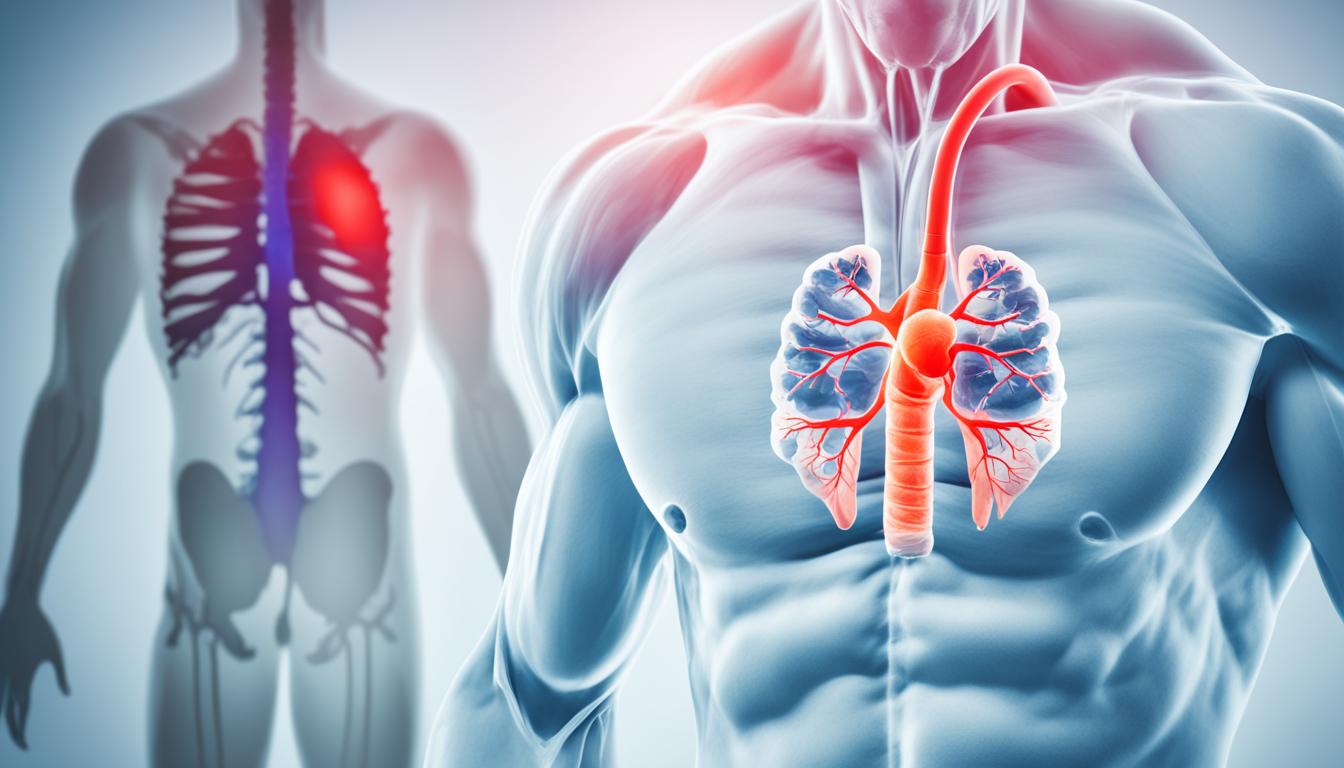Hyperthyroidism is when the thyroid produces too many hormones. It impacts the body’s metabolism and health.
People with this condition may lose weight, eat more, and have a fast heartbeat. They might feel nervous, sweat a lot, shake, and be tired.
Graves’ disease is a main cause. It happens when the immune system attacks the thyroid. Other reasons include too much iodine, thyroid inflammation, and high blood levels of T4.
Doctors diagnose the condition with blood, thyroid scans, and imaging tests. These show how the thyroid is working and any problems.
Treatments aim to balance hormone levels and relieve symptoms. Medications and radioactive iodine can help. Surgery might be needed to remove part of the thyroid. Beta-blockers help with symptoms like a fast heart.
Stem cell therapy is a new area of research for hyperthyroidism. Stem cells can become different cell types, including thyroid cells. This could mean a new way to treat the condition.
Key Takeaways:
- Hyperthyroidism, also known as an overactive thyroid or Graves’ disease, leads to the overproduction of thyroid hormones and can cause a range of symptoms.
- The immune system attacks the thyroid gland in hyperthyroidism, resulting in excess hormone production.
- Common causes of hyperthyroidism include Graves’ disease, excess iodine intake, thyroiditis, benign or toxic thyroid nodules, and tumors of the ovaries or testes.
- Diagnosing hyperthyroidism involves various tests that assess thyroid function and provide insights into the underlying cause.
- Treatment options include anti-thyroid medications, radioactive iodine therapy, surgery, and beta-blockers. Stem cell therapy is being explored as a potential future treatment approach.
Stem Cell Therapy for Managing Hyperthyroidism
Stem cell therapy is a new way to treat hyperthyroidism, a common thyroid problem. It uses stem cells’ ability to change into different types, like thyroid cells. This helps the thyroid gland work better.
Studies show that stem cells from different places, like fat and embryos, can become thyroid cells. These new cells can mix with those in a damaged thyroid. This may help the thyroid heal and work correctly.
Besides making new thyroid cells, stem cells also make tiny bubbles called exosomes. These exosomes can fight inflammation and help cells survive in a sick thyroid. So, stem cells have a double benefit for treating hyperthyroidism.
Right now, using stem cells for hyperthyroidism is just being tested. But the early signs are exciting. More tests and research are needed to check if it’s safe and works well. The idea of it helping the thyroid heal, and reducing inflammation is already very interesting.
To see how stem cell therapy might help with hyperthyroidism, you can look at the table below:
| Advantages of Stem Cell Therapy for Hyperthyroidism |
|---|
| Regeneration of damaged thyroid tissue |
| Restoration of normal thyroid gland function |
| Reduction in inflammation associated with hyperthyroidism |
| Improved thyroid hormone regulation |
Advances in Stem Cell Therapy for Thyroid Disorders
In recent years, strides in stem cell therapy for thyroid issues have been huge. Scientists can now create working thyroid cells from pluripotent stem cells. This could be a major step towards helping the thyroid heal itself.
Also, there are new ways to grow thyroid tissue from stem cells. These ideas offer fresh hope for treating hyperthyroidism and thyroid cancer. They look very promising.
Tests on animals show that stem therapy might boost thyroid health and cut down on harmful cell byproducts. But, more studies are needed to be sure this will work for people with thyroid problems.

